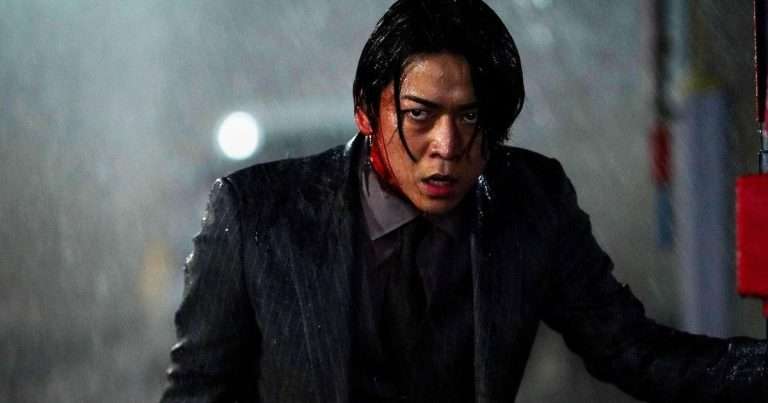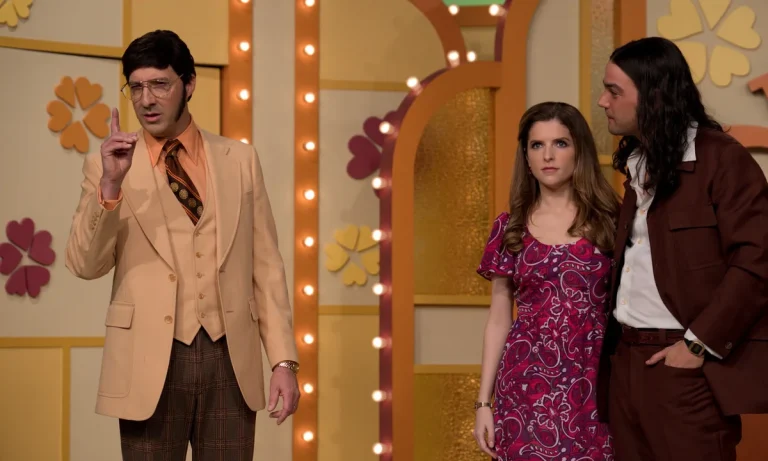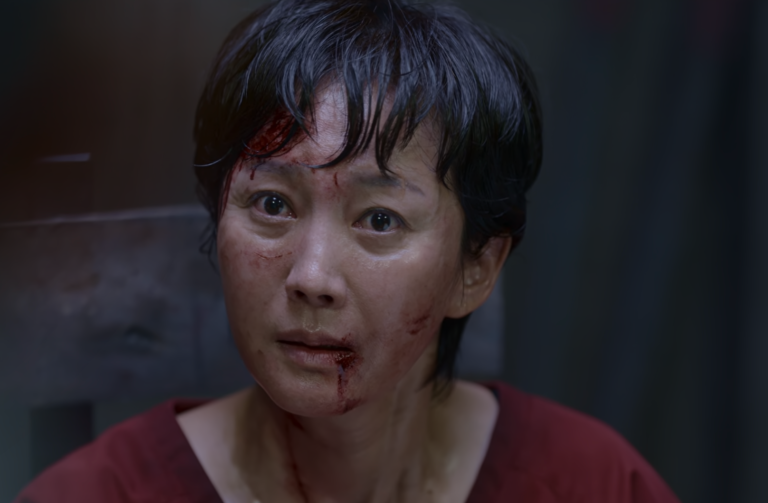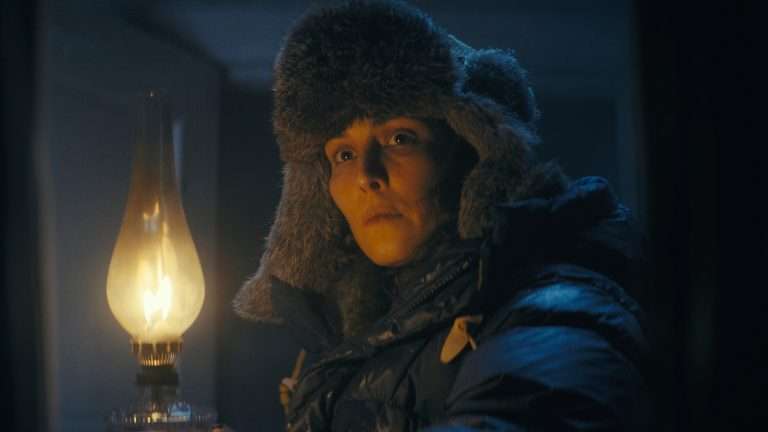In Orb: On Movements of the Earth (Season 1, Episode 20) titled “I Love Heliocentrism,” the story unfolds as Jolenta completes Oczy’s book. Although the original plan was to have Draka killed, she finds herself reconsidering—believing he deserves another chance at life. As Draka spends time among the Heretic Liberation Front, he begins to grasp the weight of their sacrifices—witnessing firsthand the personal costs of unwavering conviction and the pursuit of belief.
Through deep and challenging conversations, he comes to understand the profound consequences of standing firm in one’s ideals. Meanwhile, the inquisitors, having uncovered a crucial lead on the leader of the Heretic Liberation Front, close in on Jolenta, setting the stage for an imminent confrontation.
This article contains spoilers.
Orb: On Movements of the Earth (Season 1) Episode 20 “I Love Heliocentrism” Recap:
The episode opens with Jolenta handing the written book to Schmidt to take to the next destination. Since Draka’s job is over, Schmidt wonders if Draka needs to be disposed of. But Jolenta thinks Draka deserves a chance in the world as support does not come easy for girls like Draka. Before sending the men off, Jolenta says her work is done and that she is no longer the leader of the Heretic Liberation Front. The ultimate goal for Jolenta is to have a space to let all kinds of books be published. Meanwhile, Asch informs Nowak that they have found the place where the leader of the Heretic Liberation Front is. Immediately, troops are summoned to capture the leader.
As Draka walks by, one of the members of the Heretic Liberation Front gives Draka a piece of bread. Curious about the organization and its people, Draka asks the man why he threw away his chance in heaven fighting for the heretics. The man reveals that his younger sister died young, and on her deathbed, the girl wondered why she was born. The man wanted to tell his sister that she was dying on behalf of God, but the girl died before he could say anything. The reason he joined the organization is to accept death. Furthermore, the man realizes that the people killing heretics are humans and everything is on behalf of God. The man also believed religion was important, but the church was formed years ago, and there are bound to be some changes.
Why does Jolenta think history is important?
Later, Draka finds Schmidt and asks him why he despises human-made things. So Schmidt says in his village, people were killed over the interpretation of God, and his parents died as well. These things are unnatural, according to Schmidt. If there is a problem, it must be dealt with at the root level. Disasters take place because of human-made things. Everything that a human does is an ugly imitation. When humans borrow the power of nature, they make ugly weapons. To prove his belief, Schmidt quotes Plato, who once said humans’ imitations are merely a form of play. They should not be taken seriously. Now, Draka quotes Aristotle, who once said technology imitates nature. Technology also completes what nature couldn’t.

Draka says that the bloodied coins and cloth fabric are human-made, but this reminds Draka of her conviction. That night, Draka meets Jolenta to bid farewell. At that time, Jolenta gives Draka a vial containing a letter. If the book profits, Draka is to write that letter as it is Jolenta’s obligation to her predecessors. However, Draka does not understand why she needs to take care of it. The answer is simple: Draka is young and is the protagonist of history. When Draka protests, saying history does not concern her, Jolenta thinks differently. According to Jolenta, all humans carry a part of history. Humans rely on memory and the desire to peek into the past. According to religion, history is an extension of God’s will. Now, Jolenta thinks of Nowak and wonders what would happen if they confronted each other after having opposing beliefs.
Orb: On Movements of the Earth (Season 1) Episode 20 “I Love Heliocentrism” Ending Explained:
Was Jolenta’s Death Inevitable?
At this moment, Schmidt and the others interrupt Jolenta as they see two carriages approaching. Jolenta gives them directions to find another carriage to escape while she distracts the inquisitors. The inquisitors confirm Jolenta’s identity as the leader of the organization. When Nowak gets out, Jolenta kills herself using explosives. For a brief moment, Nowak felt he saw Jolenta. The only thing the inquisitors know is the leader is dead. In the carriage, Schmidt tells Draka that Jolenta sacrificing herself was part of the plan. Since they need the Reformation group’s help to distribute the book, it is important they know the leader of the Heretic Liberation Front is dead.
The reason is that the Reformation group comprises the heretics, who are people of faith. If they get a solid confirmation that the leader is dead, they will help. Since it was Jolenta’s conviction, she was ready to become a martyr. When Draka starts to feel bad, Schmidt tells Draka that one day she will be in Jolenta’s position, as Draka has firm conviction as well. If Draka is unwilling to sacrifice herself at that moment, then Draka is all talk. Furthermore, Schmidt tells Draka that where they are headed does not have a place for sympathy. The cart rider sees two knights approaching. The cart passes by them, but the group hears the horses stop. The knights ask everyone on the cart to get out.
Will Jolenta’s Sacrifice Be in Vain?
The long-awaited reunion between Jolenta and Nowak turns out to be heartbreakingly anti-climactic—Jolenta has taken her own life before they can meet. It remains unclear whether Nowak ever realizes that she was the leader of the Heretic Liberation Front, though he catches a fleeting glimpse that leaves him questioning. With no definite answers, he may be doomed to live without closure, forever haunted by the uncertainty surrounding Jolenta and her fate.
As the next episode unfolds, the tension rises—are the knights stopping the cart as part of a routine inspection, or have they uncovered critical leads on the Heretic Liberation Front? If it’s the latter, the group is in grave danger. However, with only two knights standing in their way and Schmidt’s men being formidable fighters, they may have a chance to eliminate the threat and make their escape. But if they are captured, the consequences will be dire—the book may never be published, rendering Jolenta’s sacrifice meaningless.


![Munich – The Edge of War [2022] ‘Netflix’ Review: Yet another plea to Oppose Fascism before its too Late](https://79468c92.delivery.rocketcdn.me/wp-content/uploads/2022/01/Munich-The-Edge-of-War-2022-768x432.jpeg)



